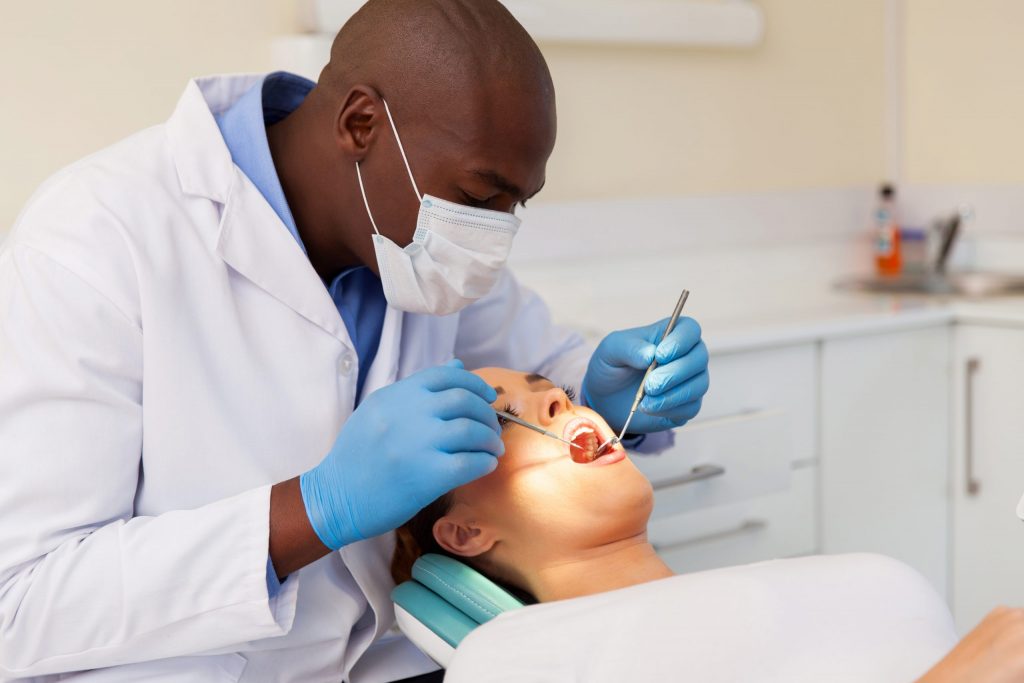An Overview to Usual Oral Problems That Require a Dentist's Treatment
Understanding the variety of dental problems that require professional treatment is vital for preserving ideal oral wellness. Toothaches, for example, can be symptomatic of severe problems such as tooth cavities, split teeth, or abscesses, each requiring particular interventions like dental fillings or origin canals. Periodontal condition, from the onset of gingivitis to a lot more severe periodontitis, underscores the value of regular dental examinations and cleanings. Moreover, affected wisdom teeth and jaw disorders can present significant pain and difficulties. Making sure prompt visits to the dental practitioner can reduce these concerns successfully, however what specifically are the therapies and signs entailed?
Toothaches
Toothaches are an usual dental condition that can range from mild pain to severe discomfort, frequently suggesting an underlying concern that calls for expert focus. This pain can originate from a selection of sources, including tooth decays, cracked or fractured teeth, and oral abscesses. Each of these problems presents significant risks if left without treatment, potentially leading to a lot more severe issues.
Oral cavities, also recognized as cavities, are triggered by the build-up of plaque that erodes tooth enamel, leading to holes or pits in the impacted teeth. Abscesses are unpleasant infections at the origin of a tooth or in between a tooth and the gum tissue, usually resulting from serious decay or unattended tooth cavities.
Efficient therapy of toothaches involves attending to the origin cause. This might include fillings for cavities, crowns for broken teeth, or origin canals and prescription antibiotics for abscesses. Very early intervention by an oral specialist can prevent additional deterioration and relieve pain, making certain ideal oral health and wellness.
Gum Disease
Gum tissue disease, a common yet often ignored oral problem, materializes through inflammation and infection of the gums and supporting cells. This condition mainly happens in two phases: gingivitis and periodontitis. Gingivitis, the milder kind, presents with signs such as red, inflamed gums that might bleed conveniently during brushing or flossing. If left neglected, gingivitis can proceed to periodontitis, an extra extreme form characterized by the damage of the sustaining bone and connective cells, ultimately bring about tooth loss.
The main reason of gum tissue condition is microbial plaque, a sticky, anemic movie that frequently forms on teeth. Poor dental health, cigarette smoking, genetic predisposition, and specific clinical problems, such as diabetes, can worsen the danger of developing gum tissue condition. Routine dental exams are crucial for early discovery and management of this condition.
Treatment for gum tissue condition varies from specialist dental cleaning and scaling to advanced treatments like root planing and gum surgery, relying on the seriousness. Keeping great oral health methods, including cleaning twice daily, flossing, and utilizing an antiseptic mouthwash, can significantly reduce the risk of gum tissue illness and promote healthier gums.
Cavities
Cavities, also understood as cavities, are a common dental problem identified by the devastation of tooth enamel due to acid-producing germs in the mouth. These microorganisms thrive on sugars and starches from food and drinks, producing acids that gradually erode the enamel, leading to tooth cavity development.
Early-stage tooth cavities might disappoint symptoms, however as they progress, they can cause tooth pain, sensitivity to cool or hot, noticeable holes read the article or pits in the teeth, and staining. If left neglected, dental caries can permeate much deeper layers of the tooth, potentially causing extreme discomfort, infection, and even tooth loss.
Protecting against tooth cavities entails a mix of good oral health techniques and dietary routines. Regular cleaning with fluoride toothpaste, flossing, and routine dental examinations are crucial. Dental professionals might additionally recommend additional precautionary actions, such as fluoride treatments and oral sealers, to safeguard teeth from degeneration.
Minor cavities can be addressed with oral fillings, which recover the tooth's framework. A lot more advanced instances may require crowns or even root canal treatment if the decay has reached the tooth's pulp.

Impacted Wisdom Teeth
Influenced wisdom teeth are a common dental issue that happens when the third molars, frequently described as wisdom teeth, stop working to totally emerge or line up properly within the mouth. This condition typically results from not enough area in the jaw or an uncommon growth angle of the teeth. Affected knowledge teeth can bring about a variety of problems, consisting of infection, pain, and damages to surrounding teeth.
When wisdom teeth come to be affected, they are frequently partially appeared or stay totally underneath the periodontal line. This partial eruption can create a pathway for bacteria to get in the periodontals, causing infections that materialize as swelling, discomfort, and also high temperature. In addition, affected knowledge teeth can apply stress on bordering teeth, potentially creating crowding or moving.
A detailed dental evaluation, normally involving X-rays, is crucial for identifying impacted wisdom teeth. Regular dental check-ups are advisable to keep track of the condition and keep dental health and wellness.
Jaw Conditions
Jaw conditions, collectively referred to as temporomandibular joint (TMJ) problems, incorporate a variety of problems that impact the jaw joint and bordering muscles. These conditions can materialize Look At This via symptoms such as discomfort or inflammation in the jaw, difficulty chewing, a clicking or standing out noise when opening up or shutting the mouth, and also chronic frustrations. TMJ problems can develop from various elements, their website including arthritis, jaw injury, or habitual behaviors like teeth grinding or jaw clenching.
Medical diagnosis of TMJ disorders typically entails a detailed examination by a dental professional, including a physical assessment of the jaw, dental X-rays, and in some cases advanced imaging methods like MRI or CT checks to evaluate the joint's problem. Non-invasive strategies such as physical treatment, dental splints, and medicines aimed at lowering swelling and discomfort are usually first-line therapies.
Very early treatment by a dental specialist is crucial to avoid the progression of TMJ conditions and to maintain overall dental health and wellness. Individuals experiencing persistent jaw discomfort or dysfunction need to look for prompt analysis and therapy.
Final Thought
Toothaches commonly indicate underlying problems such as tooth cavities, cracked teeth, or abscesses, requiring prompt treatment. Affected knowledge teeth and jaw conditions additionally require specialist focus to relieve discomfort and protect against further issues.
Oral dental caries, likewise known as cavities, are created by the buildup of plaque that wears down tooth enamel, leading to holes or pits in the impacted teeth. Abscesses are uncomfortable infections at the origin of a tooth or between a tooth and the periodontal, usually resulting from extreme degeneration or untreated dental caries.

Additionally, impacted knowledge teeth can exert pressure on surrounding teeth, possibly causing crowding or changing.